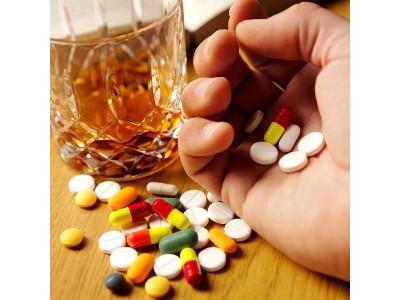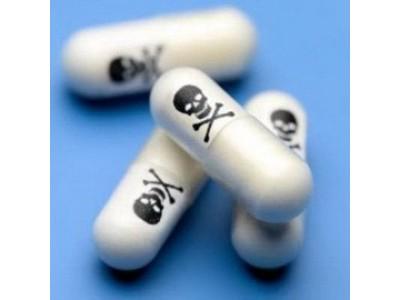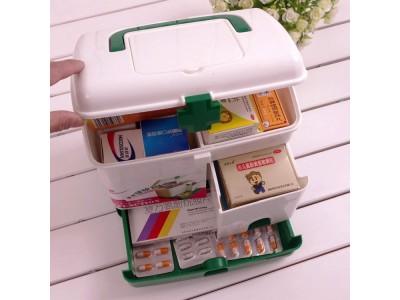 Modern medicine is impossible without modern medications. Unfortunately, some medications have a dangerous pair. Their drug interactions can lead to unpredictable and terrible health consequences.
Modern medicine is impossible without modern medications. Unfortunately, some medications have a dangerous pair. Their drug interactions can lead to unpredictable and terrible health consequences.
Let’s talk about most common drug interactions.
Antibiotics and oral contraceptives
Women often have antibiotics, such as a popular drug Neggram. But at the same time they want to protect themselves from unwanted pregnancy. When combined these medicines is able to reduce the effectiveness of birth control pills and you risk becoming pregnant. There are two reasons for that:
Microbes in the intestine improve the absorption of hormones. That is, hormones stay longer in the body, and longer protect against unwanted pregnancy. Antibiotics kill intestinal microbes, hormones are not absorbed, so a large amount of hormones is simply lost with feces
Many antibiotics stimulate the activity of liver enzymes, so they begin to quickly destroy hormones. As a result, the concentration of contraceptives in the blood decreases, and with it and the effectiveness of preventing pregnancy
To solve this problem is extremely simple: if you should take antibiotics and contraceptives at the same time, then use condoms.
Loperamide and calcium
Loperamide (Imodium) is the most commonly used medicine for diarrhea. It is sold without prescription under different brands. Calcium is a part of two groups of non-prescription medications: bone preparations that women take after menopause to reduce the risk of osteoporosis and is part of some drugs that reduce the acidity of gastric juice.
The main purpose of Loperamide is inhibition of intestinal motility. But calcium has a similar adverse effect! Therefore, the combination of these two agents can lead to very severe pain constipation.
So what to do if this medical drug interaction takes place? If you start taking loperamide from diarrhea, take a break from calcium supplements, otherwise your diarrhea may become constipation.
Verapamil, beta-blockers
Verapamil belongs to a group of calcium blockers. Calcium reduces blood vessels. Verapamil blocks its effect the vessels expand, which leads to two important effects: reduced blood pressure, improves blood supply to the heart, ischemic pain disappear.
Beta-blockers (atenolol, metolol and other drugs with the ending "-ol") are the most important drugs for the treatment of heart failure. With heart failure, the heart with great effort pushes blood throughout the body. Beta-blockers, on the one hand, reduce cardiac contractions, but on the other their effectiveness increases.
Verapamil, as well as beta-blockers reduce heart contractions. Therefore, this dangerous drug interaction can lead to a significant slowdown in the heart rate. In the worst case, it can stop the work of the heart.
Therefore, it is necessary to control the pulse several times a day, write it down in a diary. In case of severe bradycardia (less than 50 min), seek medical attention.
Medicines for colds and allergies
Multi-drug interaction of medicines for allergies and colds include antihistamines. As part of the medicines for colds, they reduce the phenomena of inflammatory reaction (sneezing, tearing, etc.). The side effect of these medical products is drowsiness. Therefore, after taking both, you risk losing all-day cheerfulness. In addition, such a problem may be a big danger if, for example, you plan to drive a car this day.
If you are taking a medicine from a cold, for a while give up antihistamines or take medications of the second-third generation that have less effect on the nervous system.
Warfarin and painkillers
Warfarin is a medicine that reduces blood coagulation. It makes the blood more liquid and the risk of blood clots decreases. Often, Warfarin is prescribed for a flashing arrhythmia, in which the blood clots are formed in the heart, which can fly into the brain and cause a stroke.
Reducing blood coagulation is a known side effect of non-steroidal anti-inflammatory drugs. Therefore, the combination of NSAIDs with Warfarin significantly increases the risk of dangerous bleeding.
If you have to take Warfarin, avoid pain medication from the NSAIDs group. Instead, ask your physician if you can use Paracetamol — in most cases it is a good replacement for NSAIDs.
Aspirin and painkillers
What are possible drug interactions in this case? Firstly, both aspirin and NSAIDs cause side effects on the mucous membrane of the stomach, therefore, in case of constant joint administration, they can cause ulceration and stomach bleeding.
Second, NSAIDs compete with aspirin for the same enzyme. But they block it worse than aspirin. Therefore, the effectiveness of aspirin reduces significantly.
How to reduce potential risks? Do not take these drugs on an empty stomach. Take NSAIDs at least 30 minutes after aspirin or 8 hours before it. If you are taking aspirin, try not to take the NSAID at all. The pain in many cases can be removed with Paracetamol, which does not interact with aspirin, but only ifyour attending physician considers this replacement safe.
Statins and Fluconazole
They too can cause toxic drug interactions. Statins are the main drugs for lowering cholesterol.
Fluconazole is one of the key antifungal medications. It is very effective against candidiasis the thrush, which most often affects the genitals and the mucous membrane of the mouth.
Statins are processed by liver enzymes. Fluconazole inhibits the effect of these enzymes, which leads to excessive accumulation of statins in the body. In large quantities, statins can cause rhabdomyolysis — muscle damage
Since Fluconazole is usually taken by short courses (from one to several days), it is advisable to cancel statins.
ACE inhibitors and Spironolactone
ACE is an enzyme that is involved in the production of a substance called angiotensin II, which narrows the blood vessels. ACE inhibitors block the production of this enzyme, as a result of which the vessels expand and pressure decreases.
Spironolactone is one of the most important drugs for controlling heart failure. With heart failure, the heart works poorly; it is difficult for it to pump large volumes of liquid. Spironolactone removes excess salt and fluid from the body, blood volume decreases, heart load decreases.
Both ACE inhibitors and Spironolactone increase the potassium concentration in the blood. This can lead to hyperkalaemia. It is dangerous because the heart rate changes.
Therefore, people who use these medicines at the same time should regularly check the blood on potassium. It is also necessary to limit the consumption of products with high potassium content (bananas, lentils, parsnips, Brussels sprouts, sweet potatoes).





